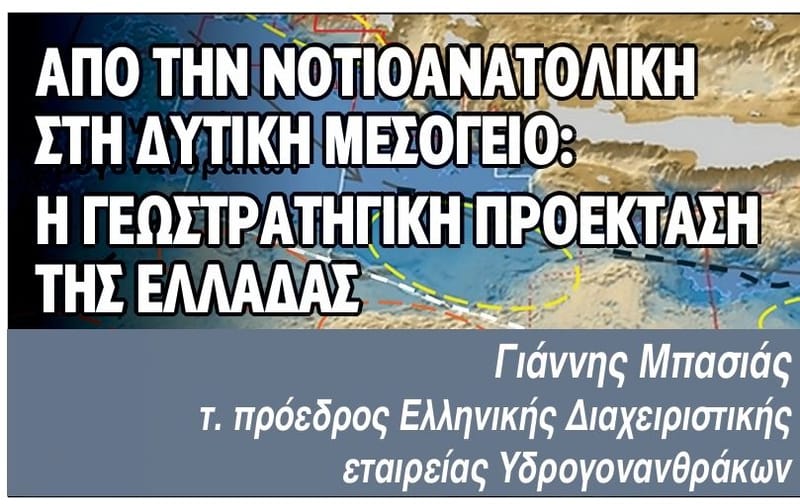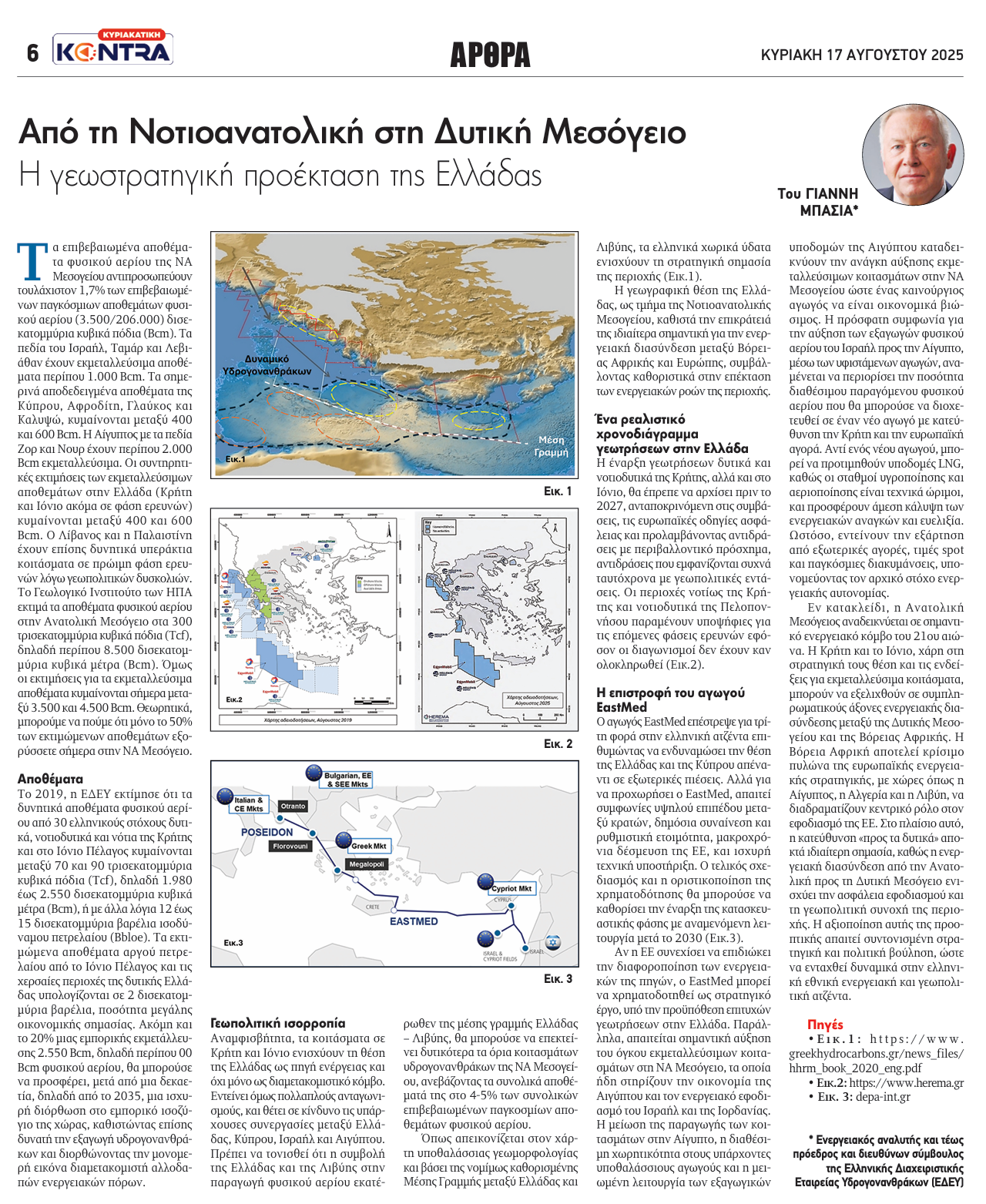From the Southeast to the Western Mediterranean – Greece's geostrategic extension

A geopolitical and energy story unfolds in the Southeastern Mediterranean. Natural gas recoverable reserves in the Southeatern Mediterranean currently range between 3,500 and 4,500 Bcm. Theoretically, only 50% of the estimated reserves are currently being extracted in the southeastern Mediterranean. The deposits in Crete and the Ionian Sea strengthen Greece's position as an energy source and not just as a transit hub.
The confirmed natural gas reserves of Southeastern Mediterranean represent at least 1.7% of the world's confirmed natural gas reserves and could go up to 5%.
Geopolitical balance
With the EU aiming to diversify away from Russian gas, the Southeastern Mediterranean could play a pivotal role in reshaping Europe’s energy map.
Undoubtedly, the deposits in Crete and the Ionian Sea strengthen Greece's position as an energy source and not just as a transit hub. However, it intensifies multiple forms of competition and jeopardizes existing cooperation between Greece, Cyprus, Israel, and Egypt. It should be emphasized that the contribution of Greece and Libya to natural gas production on either side of the Greece-Libya median line could extend the hydrocarbon reserves of the southeastern Mediterranean further west, bringing its total reserves to 4-5% of the world's total proven natural gas reserves.
The geographical position of Greece, as part of the Southeastern Mediterranean, makes its territory particularly important for energy interconnection between North Africa and Europe, contributing decisively to the expansion of energy flows in the region.
Γιάννης Μπασιάς: Από τη Νοτιοανατολική στη Δυτική Μεσόγειο - Η γεωστρατηγική προέκταση της Ελλάδας
"Κυριακάτικη Κόντρα - Έντυπη Εκδοση - Αρθρο - August 18, 2025"
Yannis Bassias – Selected parts translated in English from the original article in Greek
